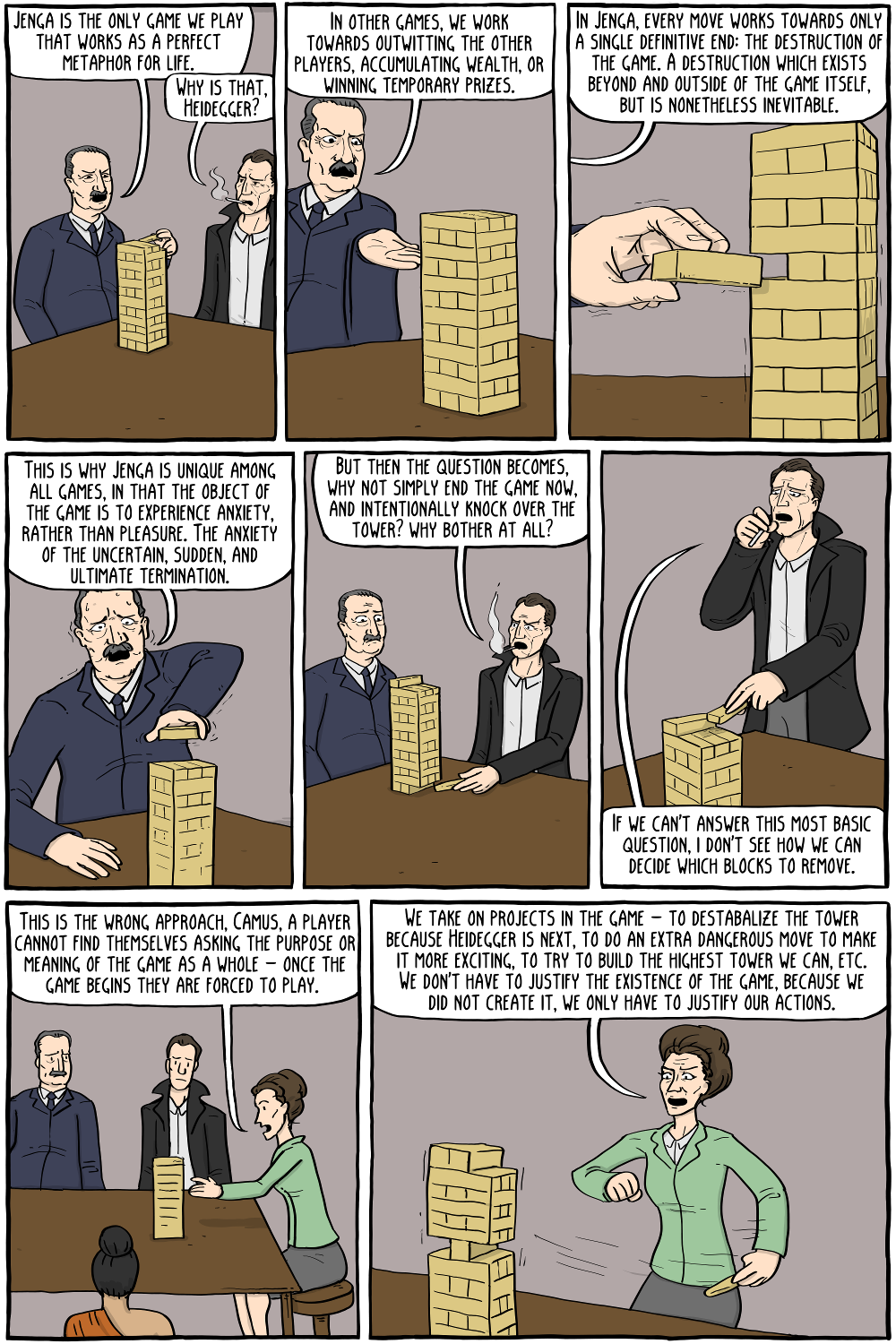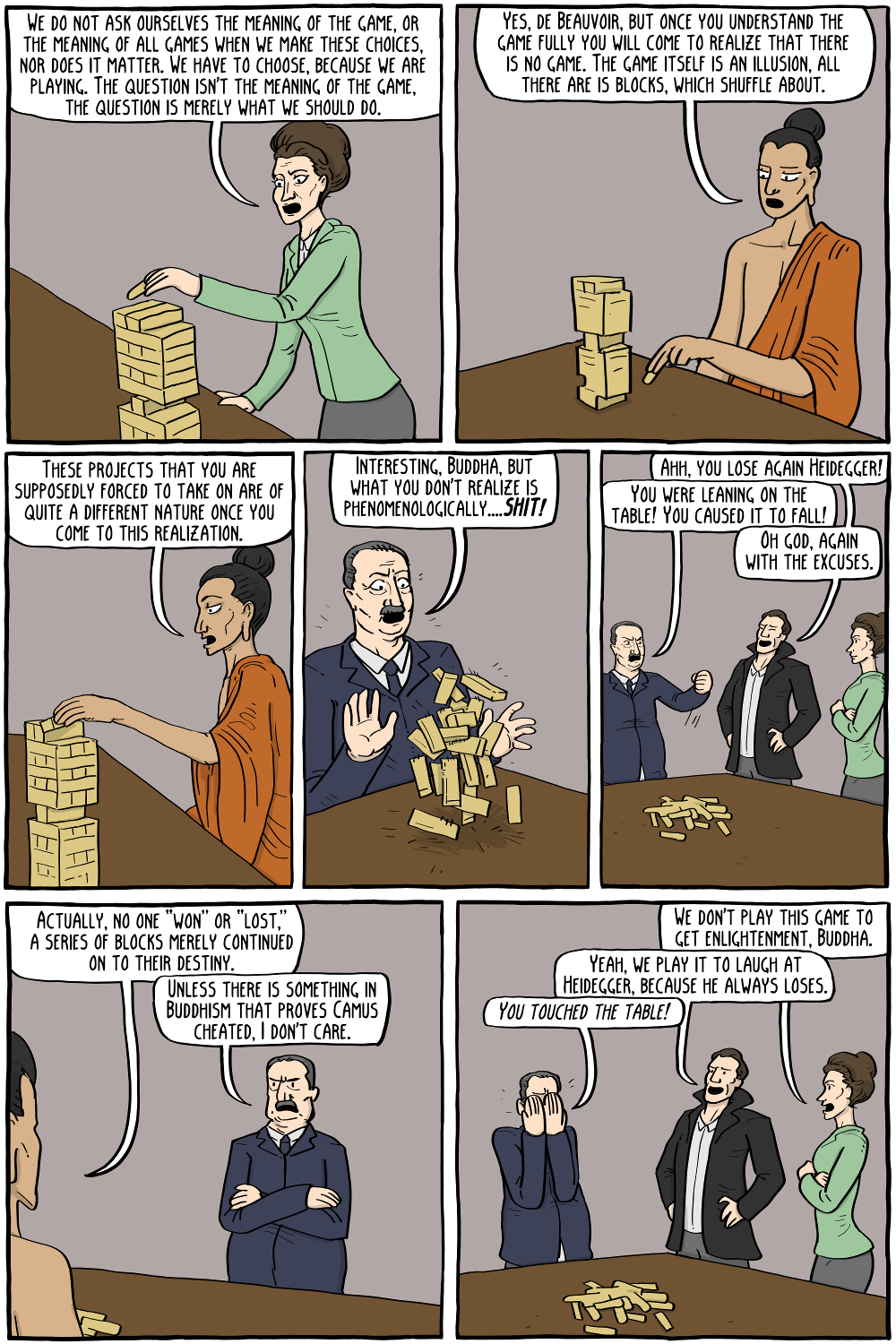

For Heidegger, the most authentic mode of being was "Being-Towards-Death", which means being while fully aware and understanding that our death is coming. Death doesn't take place in our life, it is outside of life and experience, but still we must live knowing that everything we do brings us closer to death. While this knowledge brings us angst, if we don't live acknowledging the true nature of our existence, we are living inauthentically.
For Camus, the question of whether or not we should kill ourselves was in some way the central question of life. It wasn't until we could answer this most basic question that we could answer the more concrete problems of life. Without knowing whether or not life was worth living, for example, we could not say whether or not we should chase pleasure or crusade for political justice.
For Simone de Beauvoir, the question of whether or not we should kill ourselves was incoherent. We are thrust into existence and forced to take action, the question of what sort of form that action would take, and what kind of lives we intended to live were the only possible things we could ask ourselves. Questions about the value or meaning of life were questions outside of life itself, so not relevant to what we must do while we exist, which is to take on projects in the world.
In Buddhist traditions, coming to full enlightenment meant understand our part in the universe, and unraveling the illusions that are presented to us by everyday myths of existence. Suffering is caused by desires towards material attachments or achievements, such as winning pointless games, and ultimate enlightenment somehow moves us past the constraints of these attachments, allowing us to understand that our existence is transient.
Oh, and also, Heidegger was a loser who lost at everything. That's a well known historical fact.
Permanent Link to this Comic: https://existentialcomics.com/comic/226
Support the comic on Patreon!










